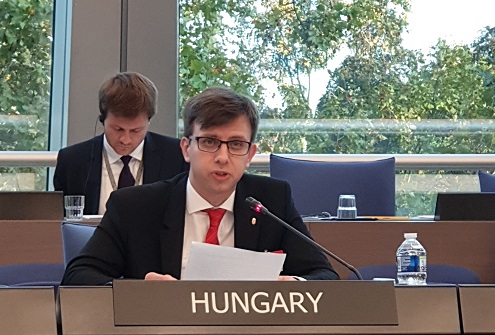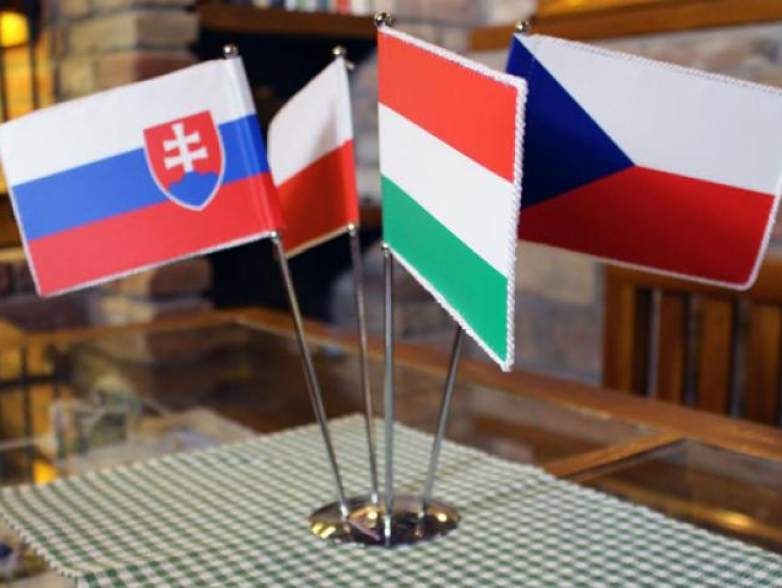Viktor Orbán strongly stirred up the stagnant water in Slovakia with his interview with Postoj.sk. Not only did he make Slovak journalists express their opinions, but the public also heard his voice. of the previous Slovak government, only Dzurinda (or, let's see, Pellegrini) rejected the construction in Central Europe, considering it more important to rub against the central core of the Union.

Viktor Orbán will give an interview to Postoj.sk on May 5, 2021/ Photo: miniszterelnok.hu
Of course, Orbán responded to Dzurinda, to which former Slovak finance minister Ivan Mikloš felt compelled to put his opinion on paper. This was answered by János Bóka, the State Secretary of the Hungarian Prime Minister's Office responsible for European Union issues.
Ivan Mikloš, based on his liberal viewpoint, considered Orbán's argument to be one-sided and misleading. It is true that the arguments of the former Minister of Finance can be heard from the experience when the driving force behind the Slovak Little Tiger was the influx of Western investors, which had to serve the interests of capital.

Ivan Mikloš/ Source: hvg.hu
János Bóka is so polite that he states in the introduction: he considers the opinion of Ivan Mikloš, one of the most successful Slovak ministers and economists, important, as it furthers the dialogue and gives an opportunity to investigate from other points of view.
On the other hand, he rejects Mikloš's assumption that Hungarians consider the processes of European integration and the internal market to be a zero-sum game. On the contrary, they are made aware that there are relationships where both parties can win, and Mikloš also admits that the more developed and stronger usually win more.
This is where Bóka actually argues with Mikloš that this should not be taken for granted.

János Bóka/Photo: IM
Both Slovakia and Hungary deserve to compete with the member states on equal terms. Mikloš's opinion seems to be permeated by something
thanks to the fact that the "West" makes gestures towards the "East" in all areas of integration.
This includes EU accession, budget transfers, and the investment of Western profits in the East. According to Bóka, it is not possible to draw clear conclusions from such a basic position. According to him, this is not what European integration is about. No one acts out of favor.
Western capital also does not take its benefits out of the country because the entrepreneurial environment is good there, and this encourages further investments. On the other hand, the primary goal of Western capital is to achieve and export profit.
János Bóka considers it natural that those countries that have the same interests should act together in the EU. This is done by the German-French axis, the Benelux states, or the Nordic and Baltic states.
Why should the interests of the V4 be relegated to pan-European affairs?
Although the countries and companies of the V4 are each other's competitors, their interests are still the same. In fact, he goes further and expresses his conviction that joint action would even have the synergistic effect that our companies could be even more successful than their Western competitors.
Bóka explains that the interests of the V4 are also similar in that our countries are equally affected by discrimination hidden behind equality. Because there are significant differences in the purchasing power of the citizens of individual member states, despite this, the EU calmly imposes uniform taxes at the pan-European level.
But the committee also thinks similarly in climate matters. According to Bóka, the impact of climate protection measures on household budgets would be the same, which is easily tolerated by a Luxembourg household, but difficult by a Visegrad household.
It is not possible to impose the same taxes on individual member countries, while there are huge differences in all elements of the economy.
János Bóka agrees with Mikloš that the success of a country largely depends on the extent to which it can carry out structural reforms. According to him, however, there is nothing to blame the Visegrád countries for. They brought the reforms that were necessary, it is true that there were also some that had to be carried out against the EU's headwinds, but time still justified them.
The interests of the V4 also share this, they do not want a European atmosphere that rewards those who postpone reforms instead of reformers.
At the end of his writing, Bóka expresses his regret that Ivan Mikloš's writing unexpectedly and inappropriately addresses the concept of illiberal democracy. In this case, they are not arguing against each other, but rather political slogans.
He does not consider this to be a new phenomenon, as almost all disputes that Hungary pursues on the European stage eventually end up here. It is not expected that this will change in the near future. However, one can hope that the V4 countries - regardless of the party colors of their leaders - will stand behind each other in the dialogue about the future of Europe!
Source and featured image: ma7sk.












